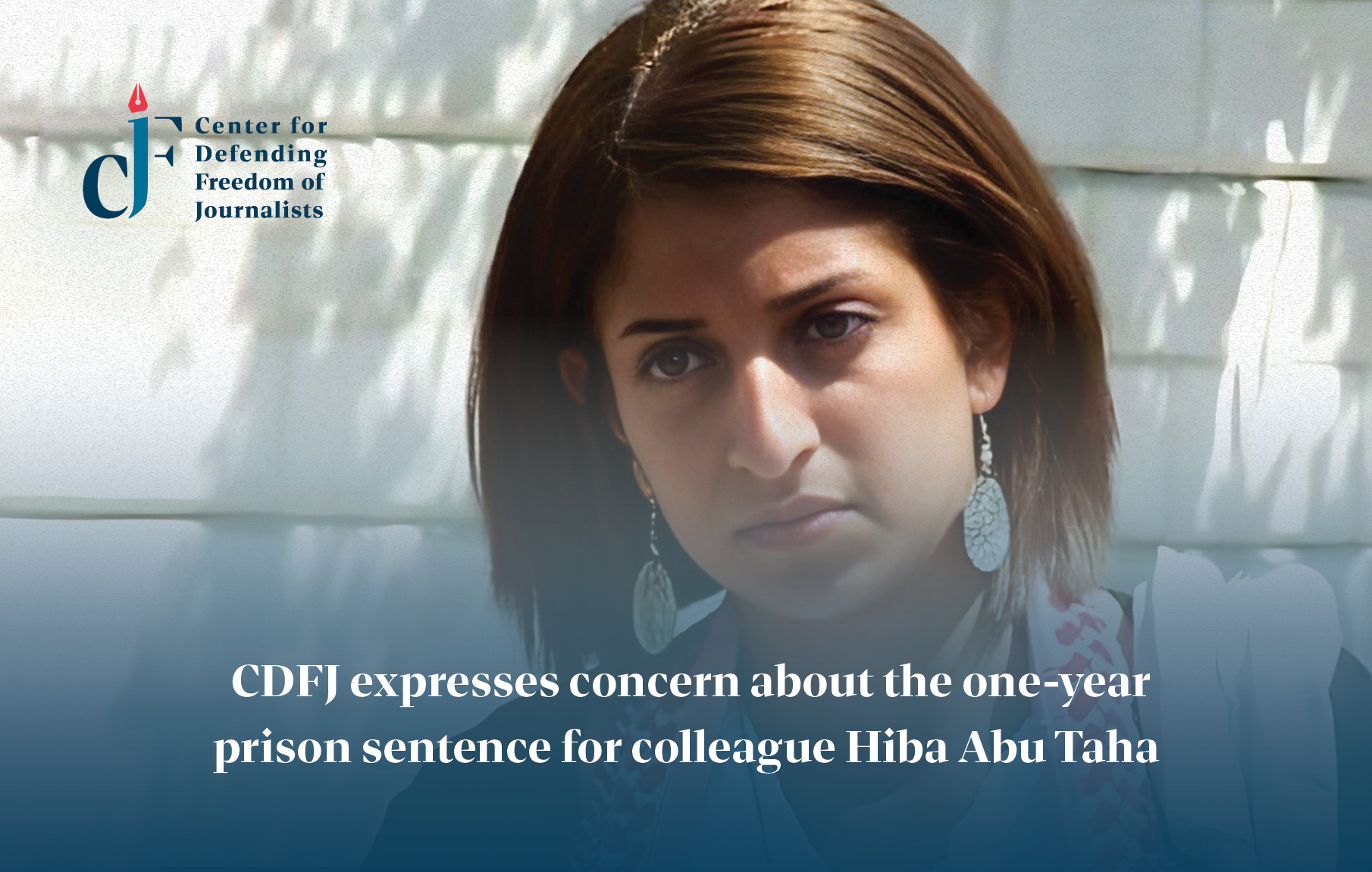
11/6/2024
The Center for Defending Freedom of Journalists (CDFJ) expressed deep concern over the one-year prison sentence issued this morning, Tuesday, against media colleague Hiba Abu Taha.
The Center called for the abolition of imprisonment sentences in cases related to publication and freedom of expression, in accordance with international human rights standards.
It also highlighted the necessity of reviewing the Cybercrime Law and its effects following its implementation, based on the call of His Majesty the King, noting that the law includes imprisonment penalties and hefty fines.
CDFJ explained that the court charged colleague Abu Taha with violating Article 15 of the Cybercrime Law, which states: Whoever intentionally sends, resends, or publishes data or information through an information network, information technology, information system, website, or social media platforms that includes fake e news targeting the national security and community peace, or defames, slanders, or contempt any person shall be imprisoned for a period of not less than three months or a fine of not less than (5000) five thousand Dinars and no more than (20000) twenty thousand Dinars, or both penalties.
In addition to Article 17, which states: Whoever intentionally uses an information network, information technology, information system, website, or social media platform to spread what is likely to stir up racist or sedition, targets social peace, incites hatred, calls for or justifies violence, or insults religions, shall be punished by imprisonment from one year to three years or a fine of no less than (5000) five thousand Dinars and no more than (20000) twenty thousand Dinars, or both penalties.
CDFJ affirmed that it would follow up on this case during the appeal stage, noting that it has provided legal assistance to colleague Abu Taha from the moment she was detained.
CDFJ emphasized the necessity for judicial rulings to support freedom of expression and media as a cornerstone for modernizing the political system, expanding the scope of public freedoms, and upholding human rights. It reminded that, historically, Jordan has never issued a final ruling sentencing a journalist to a year in prison. This is a testament to the Jordanian state’s tolerance, acceptance of criticism and differing opinions, and its commitment to preserving the margins of freedom of expression and media.
CDFJ urged journalists to exercise accuracy, objectivity, and credibility in their reporting and follow-ups. It explained that adhering to professional standards protects journalists and limits their legal transgressions, enabling the Center to defend them effectively. However, when journalists abandon their neutrality and credibility, defending them becomes challenging, and solidarity with them diminishes.

